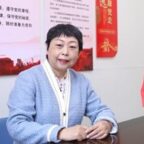To improve the recycling of agricultural biomass residues in China, the present project surveyed the recycling patterns of agricultural waste biomass in Japan by literature review and field visits. Meanwhile, the situation of agricultural straw recycling in Tianjin suburb, China was investigated as a case study. Biochar, as a new approach to the recycling of straw, was studied systematically to elucidate its possible effects on plant growth, soil microflora, and the fate of several pollutants. To disseminate the advanced strategies and technologies in biomass recycling, a monograph titled “Biochar and Environment” will be published. A workshop was held and a website was constructed. It was found that in Japan there is a long history of good practice of reusing agricultural and other biomass residues, such as wood chips, to generate energy and fertilise soil. In Tianjin, the recycling of agricultural biomass residues has achieved much progress. However, the reuse rate remains low and techniques are lagging. The study on biochar found that it could promote the growth of wheat and vegetables and immobilise heavy metals and polycyclic aromatic hydrocarbons (PAHs). Moreover, as biochar could influence the hydrolysis and biodegradation of pesticides with varying impacts dependent on its structure, it could be used for pesticide pollution control.
Project leader
Project publications



